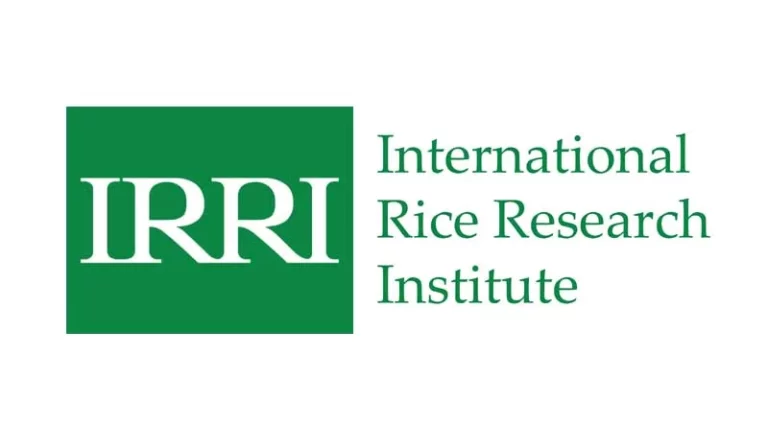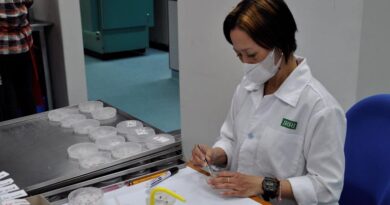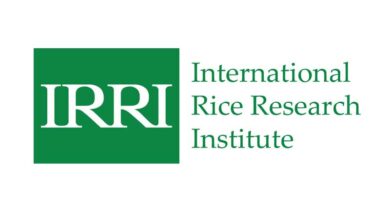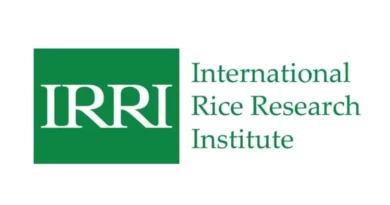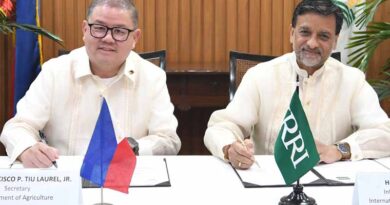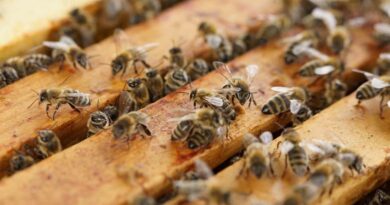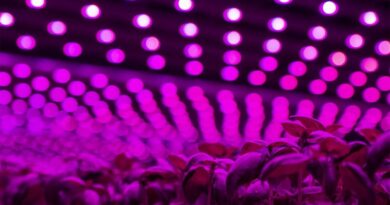IRRI is leveraging AI to secure food and nutrition security for current and future generations
Leading technology giants like Amazon and Google are applauding and supporting the research institute’s innovative uses of artificial intelligence to accelerate the development of high-yielding, nutrition-rich, and climate-resilient rice crops, and to help farmers all over the world enhance their productivity and livelihoods.
20 December 2023, UN: During his keynote at the AWS re: Invent 2023 conference a few weeks ago, Amazon’s Vice President and Chief Technology Officer Dr. Werner Vogels underscored how AI is not just the technology of the future, but is today being used by companies and organizations to solve problems and make the world better.
One of the examples he mentioned was the International Rice Research Institute (IRRI). Dr. Vogels shared that IRRI is the steward of the International Rice Genebank, the world’s largest repository of rice genetic diversity, and the first CGIAR genebank to receive perpetual funding through the Crop Trust Endowment Fund. Through this foundational genebank, scientists are able to preserve genetic material for study, replace varieties lost to climate change or calamities, and breed new cultivars with beneficial traits like higher yields and nutrition.
The genebank adds and replenishes tens of thousands of seeds a year, but strict quality standards require that seeds have to be screened and cataloged individually by hand. This is a slow and laborious process that has created a massive backlog in seeds, leading to only around 5% of total genebank resources being fully utilized for breeding.
IRRI’s innovation was to combine machine learning and computer vision, both fields of AI, with high-throughput phenotyping methodologies to automate part of the process. By training AI to visually recognize the characteristics of rice seeds, such as size, shape, color, and texture, with humans performing final quality assurance, speed and efficiency are dramatically improved. Dr. Venuprasad Ramaiah, head of the genebank, estimates that with AI, 100% of the total collection could be fully identified and cataloged within just two years and cost 16 times less. He further notes that the technologies and methodologies used can be shared with other genebanks around the world and adapted for other seed crops.
This was not the first time Dr. Vogel mentioned IRRI. Last August 2023 during the United Nations AI for Good Summit, he highlighted the same topic as well as IRRI’s strategy to utilize AI holistically across rice production. This included helping farmers with knowledge on how to apply fertilizer efficiently through Site-Specific Nutrient Management (SSNM) principles, or equipping drones with various capabilities for precision agriculture in crop establishment, nutrient management, and phenotyping.
Dr. Vogel also touched on the 3,000 Rice Genomes Project. Hosted for free on Amazon Web Services and managed by IRRI, this project is an enormous dataset of sequenced genomes from 3,024 rice varieties, developed through global collaboration and made publicly available to researchers around the world. This project is helping enable and accelerate genomic research, such as how certain genes can make rice plants more resilient to climate-related stresses like droughts, floods, and salinity.
In September 2023, IRRI’s initiatives on AI were given a big boost when the institute was awarded a USD 2 million grant from Google.org’s AI for the Global Goals Impact Challenge. IRRI was one of 15 organizations receiving technology and funding support to develop AI-powered innovations that accelerate progress toward the UN’s Sustainable Development Goals. Based on projections, economic returns across Asia and Africa for IRRI’s use of AI are expected to reach USD 30 billion within 5 years.
By harnessing the power of artificial intelligence to address challenges in global food and nutrition security, IRRI aims to drive innovation and collaboration for tangible solutions across all facets of rice production, from research and development to rice value chains, and to contribute to the alleviation of hunger, poverty, and malnutrition through the transformation of rice-based food systems to be more productive, resilient, and sustainable.
Also Read: Four New Baby Plum Tomatoes with ToBRFV Resistance
(For Latest Agriculture News & Updates, follow Krishak Jagat on Google News)

